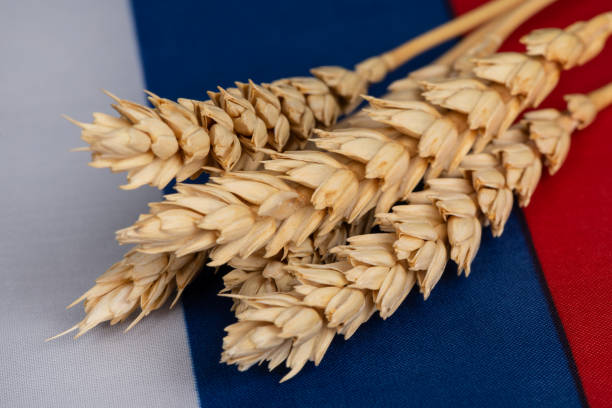“The Initiative on the Safe Transportation of Grain and Foodstuffs from Ukrainian Ports”, shortly referred to as the “Black Sea Grain Initiative” was signed in Istanbul on July 22, 2022, by Türkiye, Russia, and Ukraine.[i]
The second document signed in Istanbul on the same day was the “Memorandum of Understanding between the Russian Federation and the Secretariat of the United Nations on promoting Russian food products and fertilizers to the world markets.” [ii]
Article 1 of the Memorandum reads as follows:
“The Russian Federation will continue commercial supplies of food and fertilizers to the countries in need of such products.
“The Russian Federation will inform the Secretariat of the impediments to access of food and fertilizers, including the raw materials required to produce fertilizers (including ammonia), originating from the Russian Federation to the world markets.
“The Russian Federation will facilitate the unimpeded export of food, sunflower oil and fertilizers from Ukrainian controlled Black Sea ports.”
In return, the Secretariat agreed to continue its efforts to facilitate transparent and unimpeded access to food and fertilizers, including the raw materials required to produce fertilizers (including ammonia), originating from the Russian Federation to the world markets. And this included impediments that may arise in the sectors of finance, insurance, and logistics.
Moreover, the Russian Federation and the Secretariat undertook to establish a mutual exchange of information mechanism for the Memorandum’s implementation. Any differences between the Russian Federation and the Secretariat arising from the interpretation, implementation, or application of this Memorandum were to be resolved through consultations between them.
However, Kremlin spokesman Dmitry Peskov told reporters on July 17, that the Black Sea Grain Initiative was no longer in effect as the part of the deal concerning Russia had not been fulfilled. “As soon as the Russian part [of the deal] is fulfilled, the Russian side will immediately return to the implementation of this deal,” Peskov added. In other words, he did not say that the deal was dead and buried for good, since this could lead to a wide international reaction. Washington says that the Memorandum is fully implemented.
Since then, the public has heard very little about what is taking place behind the scenes to revive the deal. Are the UN and Russia working together to remove the obstacles to the deal’s implementation? Could it be that Secretary-General Guterres’s July 17 press encounter and his expressions of regret about the suspension of the deal were more than a disappointment for the Kremlin?[iii] Is there any communication between Moscow and Washington on the subject? Is Russia engaged in a temporary or permanent show of force with its blockade of Ukrainian Black Sea ports? Is Washington simply content to have the opportunity to accuse Russia of undermining world food security? Why are the major international groups of the Global South not taking the initiative to address the problem? Aren’t the countries in need of Russian and Ukrainian grain entitled to know why exactly the deal is off the table? Has Hungary joined Türkiye and Qatar in efforts to strike a new deal?
All we know so far, from reports in the media, is that Russia, Türkiye, and Qatar are working to set up a new deal under which Russia would be supplying its grain, primarily to African countries, Qatar would sponsor the supplies, and Turkey would be in charge of organizing the deal.[iv] But, what such a deal would mean for Ukrainian grain and the UN, as a party to the former deal, remains unclear.[v]
Last week, Ukraine and Romania signed an agreement to work together to boost Kyiv’s export of grain through the latter’s territory and improve infrastructure for transportation across river, rail, road, and sea, including at border crossings. Romanian Prime Minister Ciolacu told a news conference after his meeting in Kyiv that he hopes Romania can transport more than 60% of Ukraine’s grain exports.
This may be a positive step but the least costly route for Ukrainian and Russian grain exports remains the Black Sea.
On August 13, a Palau-flagged Turkish bulk carrier was stopped and inspected by the Russian military in the Black Sea. And the Communications Department of the Turkish Presidency said that “The Russian side was duly informed about the need to avoid such initiatives in the future, because they may exacerbate tensions in the Black Sea.” And last week, the first cargo ship to leave a Ukrainian port, the Hong Kong-flagged Joseph Schulte, reached Turkish waters safely. It departed from Ukraine’s Black Sea port of Odesa where Russian attacks have increased in recent weeks.
The problem is Ukraine’s grain harvest starts in mid-July and ends at the end of August and neither the Romanian-Ukrainian agreement nor a few ships taking the risks to travel to Ukrainian ports would resolve Kyiv’s grain export problem.
Most importantly, turning the Black Sea into a conflict area serves the interests neither of the Black Sea countries nor the global community.
Last week, it was reported that according to unnamed US officials, Russia’s military casualties in Ukraine are approaching 300,000. The number includes as many as 120,000 deaths and 170,000 to 180,000 injured. And Ukrainian casualties are close to 70,000 killed and 100,000 to 120,000 wounded.
Yet, the end is not in sight.
————————————————————————————————-
[i] https://diplomaticopinion.com/2023/07/18/the-black-sea-grain-initiative/#more-2318
[ii] https://news.un.org/pages/wp-content/uploads/2022/09/MOU_21_July_UN-Secretariat86.pdf
[iii] https://www.un.org/sg/en/content/sg/press-encounter/2023-07-17/secretary-generals-press-encounter-the-black-sea-initiative
[iv] https://kyivindependent.com/media-russia-turkey-qatar-prepare-new-agreement-to-replace-grain-deal/
[v] https://www.passblue.com/2023/07/21/russia-turkiye-and-qatar-may-be-considering-a-deal-to-send-russian-grain-to-african-countries-in-need/










